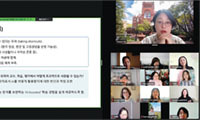▶ DAVID BROOKS
But campaign finance laws weren’t merely designed to take money out of politics; they were designed to protect incumbents from political defeat. In this regard, the laws have been fantastically successful.
The laws rigged the system to make it harder for challengers to raise money. In 1972, at about the time the Federal Election Campaign Act was first passed, incumbents had a campaign spending advantage over challengers of about 3 to 2. These days, incumbents have a spending advantage of at least 4 to 1. In some election years, 98 percent of the incumbents are swept back into office.
One of the ways incumbents secured this advantage is by weakening the power of the parties. They imposed caps on how much donors can give to parties and how much parties can give directly to candidates. By 2008, direct party contributions to Senate candidates accounted for only 0.18 percent of total spending.
The members of Congress did this because an unregulated party can direct large amounts of money to knock off an incumbent of the opposing party. By restricting parties, incumbents defanged a potent foe.
These laws pushed us from a party-centric campaign system to a candidate-centric system. This change has made life less pleasant for lawmakers but it has made their jobs more secure, and they have been willing to accept this trade-off.
Life is less pleasant because with the parties weakened, lawmakers have to do many campaign tasks on their own. They have to do their own fund-raising and their own kissing up to special interests. They have to hire consultants to do the messaging tasks that parties used to do.
But incumbents accept this because the candidate-centric system makes life miserable for challengers. With direct contributions severely limited and parties defanged, challengers find it hard to quickly build the vast network of donors they need to raise serious cash. High-quality challengers choose not to run because they don’t want to spend their lives begging for dough.
The shift to a candidate-centric system was horrifically antidemocratic. It pushed money from transparent, tightly regulated parties to the shadowy world of PACs and 527s. It weakened party leaders, who have to think about building broad national coalitions, and gave power to special interests.
Then came the Supreme Court’s Citizens United decision, which managed to make everything even worse. It moved us from a candidate-centric system to a donor-centric system. Donors were unleashed to create their own opaque yet torrential money flows outside both parties and candidates. This created an explosion in the number of groups with veto power over legislation and reform. It polarized politics further because donors tend to be more extreme than politicians or voters. The candidate-centric system empowered special interests; the donor-centric system makes them practically invincible.
Then along came the Supreme Court’s McCutcheon decision this week. It has been greeted with cries of horror because it may increase the amount of money in politics. But this is the wrong metric. There will always be money in politics; it’s a pipe dream to think otherwise. The crucial question is where is the money flowing.
The McCutcheon decision is a rare win for the parties. It enables party establishments to claw back some of the power that has flowed to donors and “super PACs.” It effectively raises the limits on what party establishments can solicit. It gives party leaders the chance to form joint fund-raising committees they can use to marshal large pools of cash and influence. McCutcheon is a small step back toward a party-centric system.
In their book “Better Parties, Better Government,” Peter J. Wallison and Joel M. Gora propose the best way to reform campaign finance: eliminate the restrictions on political parties to finance the campaigns of their candidates; loosen the limitations on giving to parties; keep the limits on giving to PACs.
Parties are not perfect, Lord knows. But they have broad national outlooks. They foster coalition thinking. They are relatively transparent. They are accountable to voters. They ally with special interests, but they transcend the influence of any one. Strengthened parties will make races more competitive and democracy more legitimate. Strong parties mobilize volunteers and activists and broaden political participation. Unlike super PACs, parties welcome large numbers of people into the political process.
Since the progressive era, campaign reformers have intuitively distrusted parties. These reformers seem driven by a naïve hope that they can avoid any visible concentration of power. But their approach to reform has manifestly failed. By restricting parties, they just concentrated power in ways that are much worse.
스마터리빙
more [ 건강]
[ 건강]이제 혈관 건강도 챙기자!
[현대해운]우리 눈에 보이지 않기 때문에 혈관 건강을 챙기는 것은 결코 쉽지 않은데요. 여러분은 혈관 건강을 유지하기 위해 어떤 노력을 하시나요?
 [ 건강]
[ 건강]내 몸이 건강해지는 과일궁합
 [ 라이프]
[ 라이프]벌레야 물럿거라! 천연 해충제 만들기
 [ 건강]
[ 건강]혈압 낮추는데 좋은 식품
[현대해운]혈관 건강은 주로 노화가 진행되면서 지켜야 할 문제라고 인식되어 왔습니다. 최근 생활 패턴과 식생활의 변화로 혈관의 노화 진행이 빨라지고
사람·사람들
more많이 본 기사
- 성탄절 캘리포니아 이틀째 악천후…최소 2명 사망
- “여객기서 빈대 물렸다” 美·유럽 항공사 상대 억대 손배소
- 맘다니 뉴욕시장 취임위원회에 ‘파친코’ 이민진 작가
- 잘나가던 백종원, 논란에 흔들.. ‘흑백요리사2’ 복귀로 웃을까?
- 쿠팡 유출 한달 만에 용의자 특정…동기·2차피해는 여전히 베일
- 트럼프 얹은 케네디센터 개명 싫어 연례 성탄콘서트 취소
- “마가, 유럽에 첫 공격”…표현의 자유 둘러싼 전쟁 시작됐나
- 교황, 첫 성탄 메시지서 “우크라전 종전 직접 대화할 용기 찾길”
- 여성 살해·자녀 납치 한인 ‘수배’
- 남가주 전역에 ‘물폭탄’… 성탄 연휴 ‘대혼란’
- 한인타운 한복판 주유소서 강도 ‘칼부림’
- 이스라엘군 “레바논서 이란 정예부대 군인 사살”
- 러 “푸틴, 트럼프에 ‘메리 크리스마스’…젤렌스키는 야만적”
- 우크라, 성탄절에 드론·英미사일로 러 에너지시설 공격
- 체포 불체자 수만명 물류창고에 수감 추진
- “소변 불편한데 주저하다 방광 망가져”
- 트럼프, 성탄절 어린이들과 통화… “나쁜 산타 막을게”
- 한인 박찬영씨 총격살해범은 백인 군인...살해범 “박씨 차량이 끼어들어 시비가 붙어 결국 총쐈다”
- 서태지, 딸·엘리와 1년 만에 근황 “좋은 소식 없어 안타까워”
- [2025년 한 해 ‘진 별’들] 미주 한인사회 원로들 ‘역사의 뒤안길’로
- ‘라스베가스에서 만난 한인들’
- VA 페어팩스 카운티 실업자 급증
- CBS가 보류한 ‘불법체류자 추방’ 보도, 캐나다서 원본 유출
- 새해 더 건강해지기 위한 의사의 과학적 조언 10가지
- 박나래, 과거 또 파묘..이번엔 ‘나혼산’ 18L 식용유 장면
- 워싱턴 총신동문회, 새 회장에 김찬영 목사
- “대학 학자금 상환 안하면 임금 압류한다”
- 크리스마스 연휴 음주운전 ‘꼼짝마’
- “음주운전 대신 15불 할인하는 리프트 타세요”
- 상록회 “한 해 동안 함께여서 행복했습니다”
- SF기독대학교’동문의 밤’
- 봉사 가치 되새기고 발전 방안 모색
- 레저월드 홀인원 골프클럽 송년모임
- H-1B ‘10만 달러 수수료’ 연방법원, 이의소송 기각
- 난방기 뜯자 ‘비밀공간’ 은신 마피아 보스 체포
- 테슬라, “비상사태 시 차문 안 열려”
- “아름답게 장식하세~”… 청소년재단 특별수업
- [유혜미 칼럼] 치솟는 환율, 경제 지표의 역설
- 황해도민회 석경회 송년모임
- “불교계 화합과 차세대 육성 축제”
- 월드미션칼리지 장학금 수여식
- 서유리, ♥법조계 남친 데이트 신청에 두근.. “돈은 내가 낸다”
- 바야흐로 ‘귀금속 시대’… 금·은·구리까지 사상 최고
- 국기원 MD지부, 고단자 심사 실시
- 북가주목회자 사모회 총회
- [스티브 강 ‘인사이드 미국’] 2026 중간선거: 트럼프 지지율 하락이 말해주는 것
- 북한인, 아마존 위장취업 대거 적발
- “한반도 평화정착에 앞장선다”
- 피클볼이 바꾸는 부동산의 얼굴
- ‘월드컵 우승 가능성’ 한국 34위·일본 16위, 韓 A조에서도 ‘세 번째’
1/5지식톡

-
 미 육군 사관학교 West Poin…
0
미 육군 사관학교 West Poin…
0https://youtu.be/SxD8cEhNV6Q연락처:wpkapca@gmail.comJohn Choi: 714-716-6414West Point 합격증을 받으셨나요?미 육군사관학교 West Point 학부모 모…
-
 ☝️해외에서도 가능한 한국어 선생님…
0
☝️해외에서도 가능한 한국어 선생님…
0이 영상 하나면 충분합니다!♥️상담신청문의♥️☝️ 문의 폭주로 '선착순 상담'만 진행합니다.☎️ : 02-6213-9094✨카카오톡ID : @GOODEDU77 (@골뱅이 꼭 붙여주셔야합니다…
-
 테슬라 자동차 시트커버 장착
0
테슬라 자동차 시트커버 장착
0테슬라 시트커버, 사놓고 아직 못 씌우셨죠?장착이 생각보다 쉽지 않습니다.20년 경력 전문가에게 맡기세요 — 깔끔하고 딱 맞게 장착해드립니다!장착비용:앞좌석: $40뒷좌석: $60앞·뒷좌석 …
-
 식당용 부탄가스
0
식당용 부탄가스
0식당용 부탄가스 홀세일 합니다 로스앤젤레스 다운타운 픽업 가능 안녕 하세요?강아지 & 고양이 모든 애완동물 / 반려동물 식품 & 모든 애완동물/반려동물 관련 제품들 전문적으로 홀세일/취급하는 회사 입니다 100% …
-
 ACSL 국제 컴퓨터 과학 대회, …
0
ACSL 국제 컴퓨터 과학 대회, …
0웹사이트 : www.eduspot.co.kr 카카오톡 상담하기 : https://pf.kakao.com/_BEQWxb블로그 : https://blog.naver.com/eduspotmain안녕하세요, 에듀스팟입니다…
케이타운 1번가
오피니언
 스티브 강 전 한인민주당협회 회장
스티브 강 전 한인민주당협회 회장 [스티브 강 ‘인사이드 미국’] 2026 중간선거: 트럼프 지지율 하락이 말해주는 것
 김홍일 케이유니콘인베스트먼트 대표
김홍일 케이유니콘인베스트먼트 대표 [기고] 안정의 기준은 어떻게 제도가 되었나
 유혜미 한양대 경제금융대학 교수
유혜미 한양대 경제금융대학 교수 [유혜미 칼럼] 치솟는 환율, 경제 지표의 역설
 성민희 소설·수필가
성민희 소설·수필가 [윌셔에서] 우리 안의 ‘생각하는 사람’을 깨울 시간
 김정곤 / 서울경제 논설위원
김정곤 / 서울경제 논설위원 [만화경] 해수부 부산시대

[왈가 왈부] 내란재판부·정통망법 또 수정… 졸속·땜질 아닌가요
 정숙희 논설위원
정숙희 논설위원온라인쇼핑과 반품, 그리고 그 이후
 파리드 자카리아 / 워싱턴포스트 칼럼니스트 / CNN ‘GPS’ 호스트
파리드 자카리아 / 워싱턴포스트 칼럼니스트 / CNN ‘GPS’ 호스트 트럼프의 새 독트린 “미국을 다시 왜소하게”
 김동찬 시민참여센터 대표
김동찬 시민참여센터 대표 [미국은 지금] MAGA의 분열, 예견된 균열의 시작
1/3지사별 뉴스

“온 세상에 평화를⋯”
숨가쁘게 달려온 2025년을 이제 1주일 남짓 남긴 채 크리스마스 이브를 맞는다. 다사다난했던 한 해를 되돌아보며 마무리하는 연말 시즌과 크리…
H-1B비자 고임금·경력자에 우선권

“한반도 평화정착에 앞장선다”
민주평화통일자문회의 미주지역회의(부의장 이재수)는 22일 기자회견을 통해 내년도 활동 방향과 목표를 밝혔다. 이재수 부의장은 “미주지역회의는…
VA 페어팩스 카운티 실업자 급증

한인들 위한 무료 법률 상담회 개최
샌프란시스코 베이지역 한인회(회장 김한일)는 지난 20일 한인회관에서 북가주 지역 한인들을 위한 무료 법률 상담회를 개최했다. 이날 행사에는 …
여성 살해·자녀 납치 한인 ‘수배’

오늘 하루 이 창 열지 않음 닫기 





















































.png)


댓글 안에 당신의 성숙함도 담아 주세요.
'오늘의 한마디'는 기사에 대하여 자신의 생각을 말하고 남의 생각을 들으며 서로 다양한 의견을 나누는 공간입니다. 그러나 간혹 불건전한 내용을 올리시는 분들이 계셔서 건전한 인터넷문화 정착을 위해 아래와 같은 운영원칙을 적용합니다.
자체 모니터링을 통해 아래에 해당하는 내용이 포함된 댓글이 발견되면 예고없이 삭제 조치를 하겠습니다.
불건전한 댓글을 올리거나, 이름에 비속어 및 상대방의 불쾌감을 주는 단어를 사용, 유명인 또는 특정 일반인을 사칭하는 경우 이용에 대한 차단 제재를 받을 수 있습니다. 차단될 경우, 일주일간 댓글을 달수 없게 됩니다.
명예훼손, 개인정보 유출, 욕설 등 법률에 위반되는 댓글은 관계 법령에 의거 민형사상 처벌을 받을 수 있으니 이용에 주의를 부탁드립니다.
Close
x